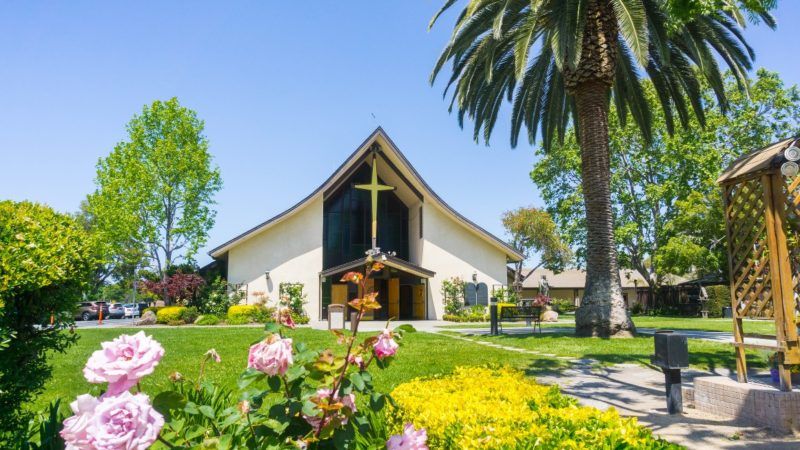Churches Get Go-Ahead in California's Latest Reopening Plans
They’re still not being treated the same as secular places of gathering, so a legal challenge continues.

California released new guidelines over the weekend explaining how churches may reopen so long as certain social distancing and public health measures are in place. The state's actions come just a week before a possible confrontation between government officials and a group of religious leaders planning to hold in-person services for the Pentecost, May 31.
Under a new 13-page plan from California's Department of Public Health, churches and places of worship in the Golden State can reopen with a limit of 25 percent capacity and a host of screening and sanitization measures in place to reduce the possible spread of COVID-19. Church staff must be screened for symptoms and their temperatures checked, and congregants should be similarly screened when they arrived for services. Social distancing plans must be implemented to keep congregants apart, which means no passing the collection plate around, singing is strongly discouraged, no potluck meals, and, of course, everybody should wear masks.
These new guidelines come just days after the Department of Justice sent Gov. Gavin Newsom (D) a letter warning that the state's reopening plans were inappropriately and unconstitutionally leaving churches behind. The state had unveiled plans for the reopening of retail spaces, bars, restaurants, schools, and other gathering places, but churches would not be considered until a later phase.
That approach presented a legal problem because public health restrictions on the rights of people to gather and worship together need to generally match the restrictions placed on comparable secular gatherings. Otherwise, the state risks running afoul of the Constitution and of certain Supreme Court precedents by treating religious activity differently than similarly situated non-religious behavior. It was those constitutional risks that prompted the Justice Department's warning letter to the state.
California also released new plans over the weekend that will allow retail stores that aren't currently open to start reopening under similar requirements as churches.
There's a notable difference in how the state treats these businesses compared to churches, however, and that difference is likely to keep the legal challenges alive against California's coronavirus closure orders. While churches are required to limit their capacity to 25 percent, places like shopping malls are only required to reduce their capacity to 50 percent. This disparity has already led to a Pentecostal pastor in San Diego County saying that the new guidelines don't do enough to persuade him to drop his legal challenge.
In fact, Pastor Arthur E. Hodges has even asked the Supreme Court to intervene in the case and added a supplementary letter to his request explaining that the new guidelines released over the weekend are not sufficient. "The State is still interfering with [the] right to free exercise of religion," Hodges and his lawyers told the Court, "by issuing arbitrary and unconstitutional orders."
Read his lawsuit here. This Sunday we'll see whether California attempts to stop the more than 1,200 churches who have declared that they'll be holding socially distant Pentecost services in person regardless of what the state orders.


Show Comments (57)